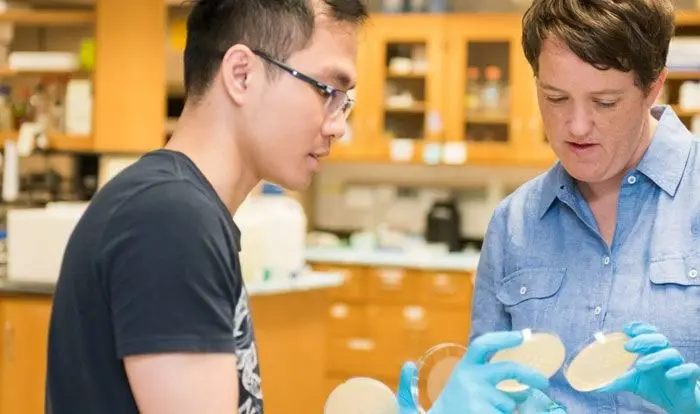UMBC launches program to prep students for biotech careers
01/17/2018| Sarah Hansen
Article Topics:
UMBC launches program to prep students for biotech careers
01/17/2018 | Sarah Hansen
Guest feature: Sarah Hansen is the STEM Communications Manager at UMBC. Follow along with UMBC onFacebookandTwitter.
A new degree program developed jointly by UMBC and Montgomery College (MC), and soon to be offered at The Universities at Shady Grove (USG), will create opportunities for students of all backgrounds to pursue high-demand careers in the life sciences.
The four-year Translational Life Science Technology (TLST) program, which leads to a bachelor of science degree from UMBC, will train students in the fundamentals of biochemistry, cell biology, epidemiology, statistics, lab instrumentation, and biochemical engineering, as well as give students opportunities to develop sought-after skills such as analytical thinking, teamwork, and data evaluation. The TLST program is accepting students now, and courses will begin in fall 2018.
"As the biotechnology industry translates basic research from 'bench to bedside,' it needs a well-trained workforce," says Dean Bill LaCourse, of UMBC's College of Natural and Mathematical Sciences, within which the TLST program resides. "The TLST program is designed from the ground up to meet that need through a flexible and interdisciplinary approach with intensive industry-inspired laboratory skills training."
Students begin coursework for the TLST program at Montgomery College, taking classes at the new, state-of-the-art Bioscience Education Center on its Germantown campus for the first two years. Successful completion of that curriculum results in an A.A.S. in biotechnology or other associate's tracks from Montgomery College.
The Biomedical Sciences and Engineering Education Building at The Universities at Shady Grove in Rockville is scheduled for completion in 2019, and will then host the third and fourth year courses of the TLST program. Both of the educational facilities are in the heart of Maryland's technology corridor and offer well-equipped classrooms and labs where students can master techniques commonly called upon in the biotech industry, such as polymerase chain reaction, gel electrophoresis, gene cloning, mass spectroscopy and chromatography.
The need for workers with these skills is especially great in Maryland, which is one of the top-ranked regions in the nation for its concentration of technology-related jobs. Of the more than 2,300 biotech companies in the state, more than 75 percent are found in Montgomery County.
Keep up with the latest.
Sign up for e-mail notifications.
